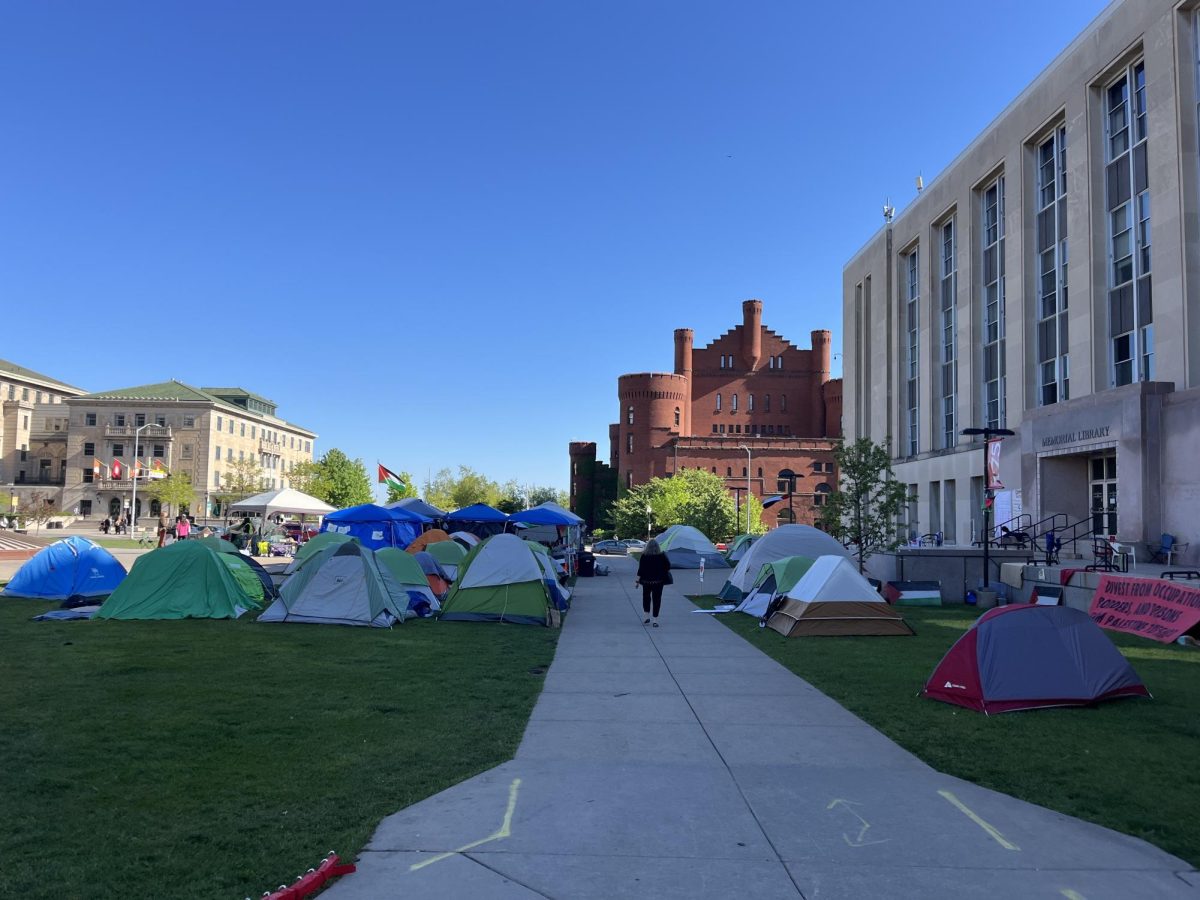After a recent eligibility hearing of the Student Services Finance Committee, Jonathon Mertzig, a staff member at the UW-Infoshop said, “They (the committee) definitely have some sort of agenda. The question is, just what is it?”
That question is foremost on the minds of many students as the SSFC moves on to budget-approval hearings for the coming fiscal year. The dilemma can be traced back years to a former University of Wisconsin student named Scott Southworth.
In recent meetings, funding to groups like Infoshop and MEChA have been cut at an unprecedented rate, and many students are wondering why. Are the decisions to deny racially motivated? Is the committee merely being fiscally responsible? Are the recent decisions based solely on ASM criteria? How will recent decisions impact the rest of the school year?
By observing an SSFC meeting, an average viewer could probably come to the conclusion that the decisions in the meeting are predetermined. Reps. like Ryan Nichols often read off of prewritten statements that invariably conclude with which way they intend to vote. Members munch on popcorn and sweets, which are passed around as groups argue their merits. Members exit and enter the room at random and motion to each other to speak in favor of or against a motion. Some groups, like Vets for Vets recently, are barely questioned at all.
Rep. Faith Kurtyka stated after one recent meeting, “It seems like some members come in and they know how they’ll vote.” Rep. Gladys Reyes agreed when asked if votes were predetermined. “Yeah, I think so,” she said. “It’s not fair ? and that doesn’t prove to be viewpoint neutral.”
Rep. Nichols disagreed, saying his decisions are “based solely on criteria and not individual viewpoints.”
MEChA, for example, was denied SSFC funding on four ASM criteria violations, including not being a significant student service, not creating an open environment to all students, duplication of existing services and violating financial policies.
During questioning, MEChA presented evidence contrary to all these violations but were still denied student money. Their appeal is scheduled for today.
When asked if his decisions were predetermined, Nichols ceded, “It is possible to alter my decision on some of the criteria.”
However, when questioning of the UW Labor Center had nearly concluded at a recent hearing, SSFC Vice-Chair Jason Davis berated fellow council members for not possessing actual evidence of ASM violations as they seemed to lean toward denying the group.
“Every single accusation being made here stands on very little evidence, ” he said. “We have ‘I believe,’ we have ‘I think,’ we have ‘it seems to me.’ I have to believe the stance of the person that comes from the organization.”
Despite Davis’ assertions of the lack of knowledge about the UWLC in the committee, it too was denied funding.
Bickering within the committee is nothing uncommon. Members Kurtyka and Reyes affirmed rumors that SSFC is set into two camps that have been at odds with each other during the recent hearings.
Led by Reps. Nichols, Mark Baumgardner and Aaron Werner and backed by Chair Roman Patzner, the fiscally conservative majority faction of the group cites ASM criteria as their prime consideration. The other camp, led by Reps. Davis, Kurtyka and Rob Welygan have stated that, “eligibility should come down to a broader question.”
This “broader question” alludes to the larger question of individual actions of student groups versus their larger stated purposes.
Nearly eight years after Scott Southworth objected to his tuition money going toward the coffers of environmentalists and left-wing groups, the Supreme Court is still debating the question of viewpoint neutrality and how it relates to student funding questions.
Southworth addressed the issue in a Badger Herald article last year saying, “The UW system operates without any resemblance of viewpoint neutrality. Legally speaking, its called ‘unbridled discretion,’ which effectively means the ASM can give money to whomever, whenever and at whatever level they choose.”
So, the real question within SSFC does not seem to be about free speech or the eradication of liberal viewpoints or fiscal responsibility, but is rather, what is viewpoint neutrality and can it be found in a group set so firmly into two camps?
“It makes me sad when a student organization so powerful does this,” said Rep. Kurtyka after a recent meeting. “These groups clearly showed they provided valuable student services . . . it’s too bad certain individuals didn’t see it that way.”












